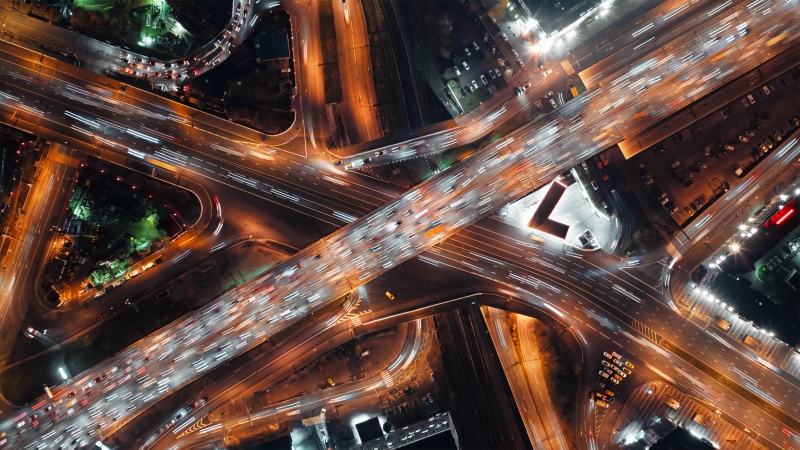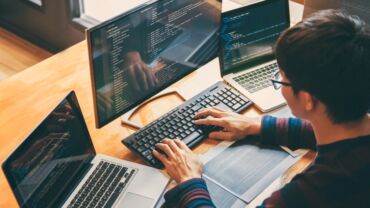Discussions around the pros and cons of AI often concentrate only on the financial benefits; however, a conversation with the Honorable Judge Braswell, a U.S. Magistrate Judge, uncovers a range of advantages that extend well beyond fiscal savings
The post is part of a new limited series of blog posts and podcasts presented by the Thomson Reuters Institute, Revolutionizing Rights: AI and the Future of Legal Equality, that will provide perspectives on the use of artificial intelligence (AI) in the legal sphere
The Honorable Maritza Dominguez Braswell draws her values from her heritage. As the daughter of immigrants, Judge Braswell knows the importance of equal rights, access to justice, and the power of the American Dream. Her commitment to these values is deeply intertwined with her passion for progress, innovation, and fresh perspectives.
In fact, throughout her career, Judge Braswell has always found ways to rethink, refresh, and reinvent. In private practice, she and her team were lauded for reimagining the traditional law firm model and leveraging technology to decrease costs to their clients. In state government, Judge Braswell was innovative in the way she managed her teams — embracing remote work even before the pandemic forced everyone into a new paradigm. And now the on the bench as a United States Magistrate Judge for the District of Colorado, Judge Braswell has helped drive forward new initiatives, such as uniform practice standards, a new chief magistrate judge position, and pro se summaries in court orders.
The power of AI
However, when it comes to the intersection of innovation and the law, Judge Braswell is most passionate about the promise of artificial intelligence (AI). She sees a future in which AI developments transcend even the realms of science fiction, and everyone benefits. Judge Braswell highlights recent developments in generative AI (GenAI), pointing out that while AI has existed in various forms for a long time, it is the latest advances in GenAI that have taken the world by storm.
“It is a very powerful tool and getting stronger by the minute. Depending on how we choose to develop it and use it, AI has the potential to lift the tide for everyone,” Judge Braswell explains. “It will be revolutionary, but it’s up to all of us — especially those with certain skills, authority, and privilege — to make sure the revolution is good for everyone.”
As AI becomes increasingly woven into our systems, it’s vital for legal professionals to understand and engage with this technology, she says. Neglecting to evolve with it, turning a blind eye to it, or discouraging its use could cause some to lag behind. This is of particular concern to Judge Braswell because it is clear that some lawyers and law firms — in particular those with means — are already capitalizing on AI to boost their efficiency. For example, some law firms are building their own large language models, other firms are adopting technology that makes it easier to generate discovery responses, others are leveraging it for back-office support.

“Judges and lawyers are in the best position to place guardrails around this technology, and that can’t happen if we don’t understand it. We can’t bury our heads in the sand and let someone else figure it out for us.”
As some lawyers become more efficient, the gap between them and others will get bigger, and their ability to generate more filings will grow (as the judiciary’s case load grows in tandem). Judge Braswell warns that if we’re not careful, AI could distract us with new problems, before it helps us solve current problems.
“AI is a train, and it’s moving very fast. We can’t outrun it, and we can’t get out of the way, so we have to jump on board,” she notes. “We have to develop and use it in a way that benefits everyone, not just those with power and privilege. We have to use it to give people greater opportunities, and ensure the American Dream is attainable for everyone, everywhere.”
The future of this profession and the courts
So, what does Judge Braswell see for the future of the legal profession if AI becomes more widespread? Should lawyers and judges worry about their jobs? “I would be naïve to say that jobs won’t be lost in this revolution but remember that the industrial revolution created far more jobs than it displaced,” she explains. “Things will balance out. I know people are scared. What was science fiction just a few decades ago, is now reality. Cars drives themselves, you can push a button, and groceries appear at your door, computers talk to us like they’re human, robots are working in factories, and we all know this is just the beginning.”
However, Judge Braswell says this future is to be feared only if we ignore it and don’t prepare ourselves. “Judges and lawyers are in the best position to place guardrails around this technology, and that can’t happen if we don’t understand it. We can’t bury our heads in the sand and let someone else figure it out for us. We have to be in the room, alongside the technology, and leveraging it so that we keep up with the rest of the world.”
Judge Braswell emphasizes the importance of the judiciary ‘keeping up.’ “Judges are busy. We know people want orders from us more quickly, we know people need access to us more regularly, we know justice delayed can be justice denied,” she acknowledges. “However, we’re inundated — there aren’t enough of us. And the problem will be exacerbated if lawyers become more efficient through the use of AI, and the courts don’t.”
But she estimates the judiciary—and more broadly, the legal profession—is among the safest when it comes to the threat of job loss. “Perhaps ironically, AI has the potential to increase human-to-human connection because it can strip away the menial, rote, and mundane. For professions like ours—in which human interaction is at the very core of our work—it means we’ll have more time to do what is most meaningful and impactful—connect, communicate, and help people through difficult times. In short, AI won’t replace us. It will enhance us.”
The many faces of AI
For Judge Braswell, the AI discussion is not just about the tools lawyers could potentially leverage, but also about the evidence in our courts. “AI tools are becoming more powerful every day, every hour — and our regulations can’t keep up. The issues will necessarily spill into our courtrooms. Deep fakes, misinformation, the impact of bias in these systems — we’ll have to sort through all of it. And to do that well, we have to be knowledgeable. We have to ask the right questions, continue the dialogue, and make sure our decision-making and procedures are keeping up with the times.”
It is also about the parties. “AI will give people better access to our justice system. Representation will become more affordable, parties will become more knowledgeable, and AI will better equip those who have to navigate the system without a lawyer.”
Judge Braswell also encourages everyone to consider the impact this technology can have on our quality of life, and by extension, on the judiciary’s capacity to serve. “We’re public servants,” she says. “And while its incredibly rewarding and fulfilling, there’s at least part of you that feels the weight of the hard work, with less help, and for less pay than in the private sector. We continue to do the work because we love our community, and we want to give back. But how great would it be if our work became just a little easier? How much more energy would we have if we could eliminate some of the most tedious and mundane tasks, and free up a meaningful number of hours in every work week? Would we be out in our communities more? Would we do more self-care and show up with more patience? Would we spend a little more time explaining our decisions to pro se parties? Would our capacity for empathy increase because we’re feeling less hurried? I think the answer to those questions is, yes.”
Judge Braswell acknowledges that, like with any powerful tool, AI can be helpful or harmful; however, she’s optimistic. “AI will change the way we organize ourselves as a society, what we prioritize, and how we engage with each other. But I have faith in humankind. I believe this change will be for the better. I believe our collaborative spirit and desire to thrive, will drive us towards a future in which AI makes the world a much better place, for everyone.”
You can hear more insights from the Hon. Judge Maritza Braswell on a special edition of the Thomson Reuters Institute Insight podcast, on Spotify







